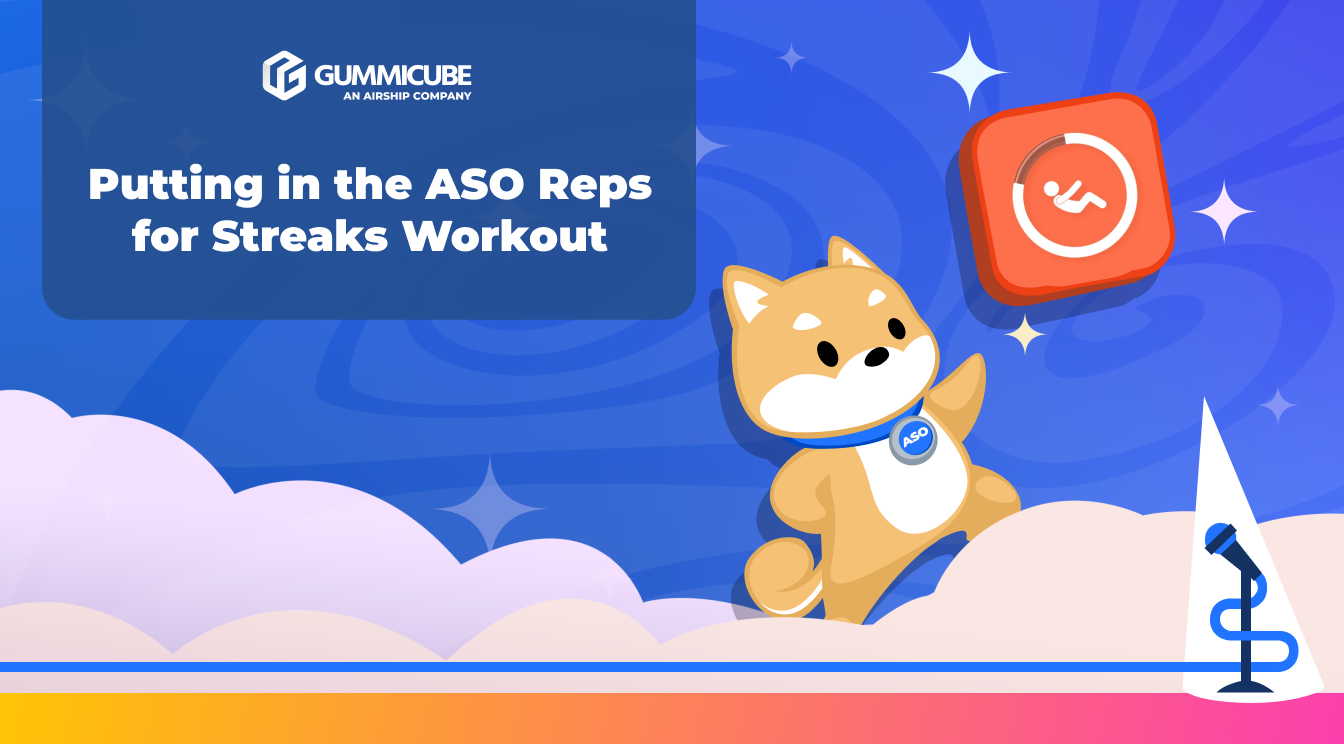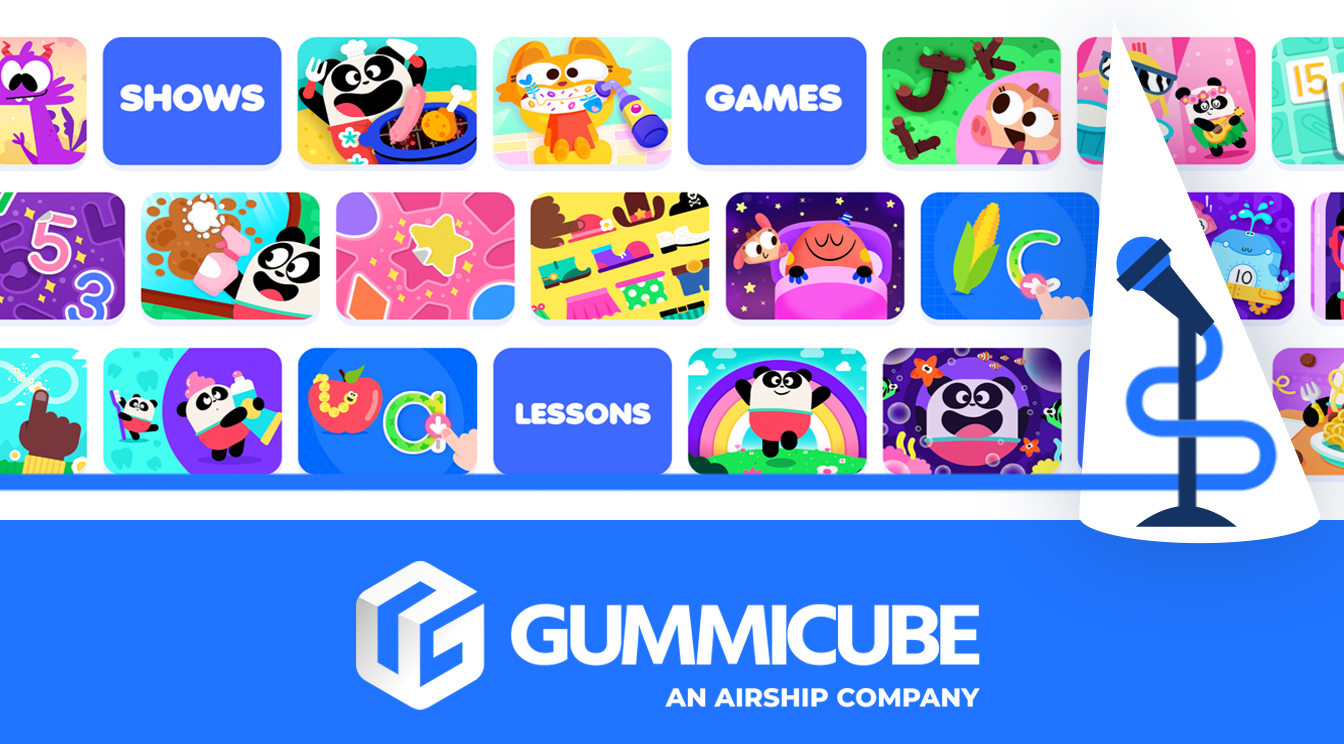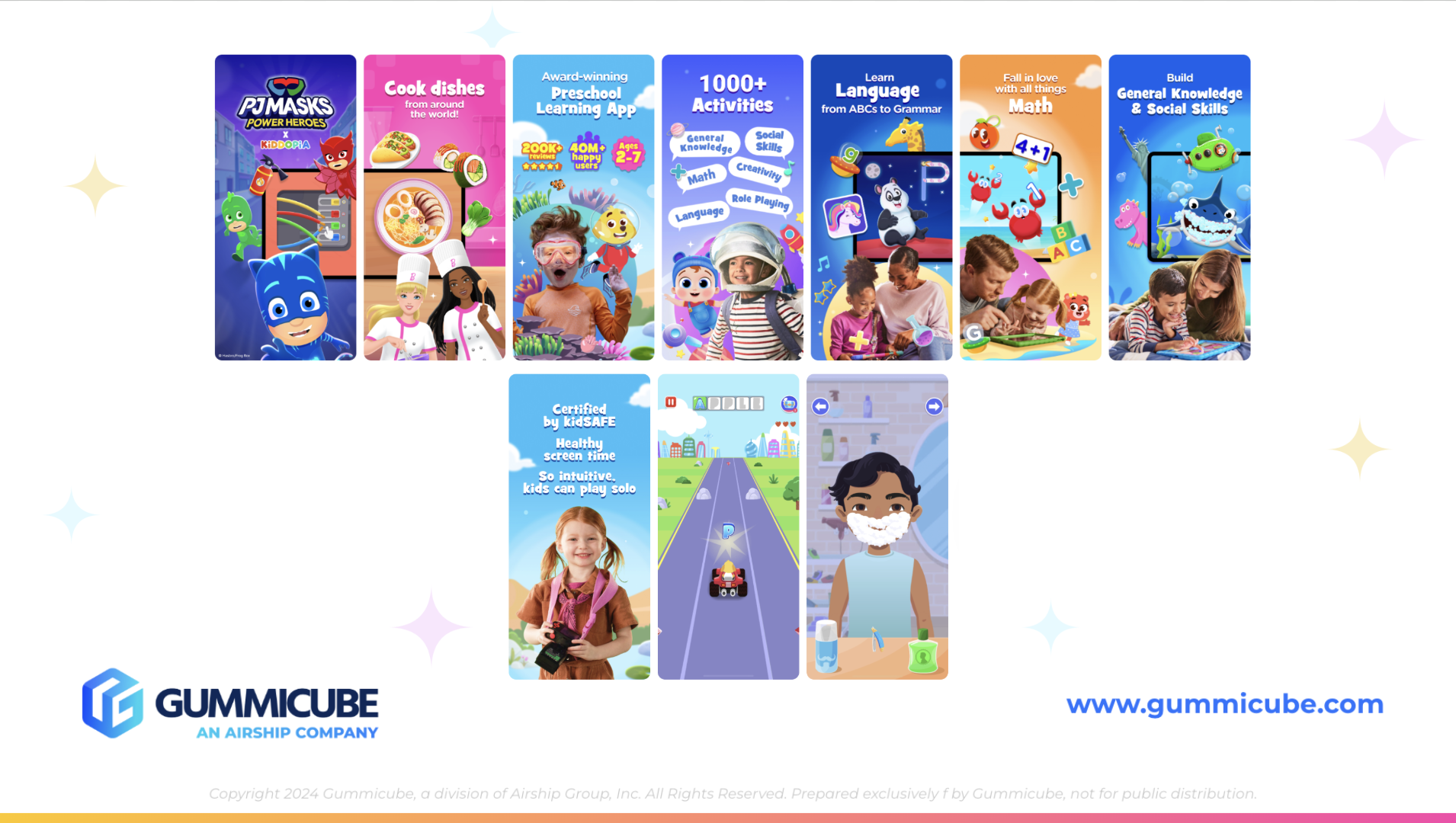
Putting in the ASO Reps for Streaks Workout
Posted on January 9th, 2026
Streaks Workout has meaningful app functionality, but its app listing does not reach its full potential. Read more to see where it can improve its ASO strategy.

This week’s App Store Spotlight is on LingoKids, a well-known educational app aimed at making learning fun for children. We will take a close look at their app title, subtitle, and screenshots to determine what is working and where there is room for improvement. By breaking down both their strengths and weaknesses, we can see exactly how an optimized App Store presence could help them increase visibility and conversion rates.
As a new school year begins, parents are actively seeking resources that can support their children’s learning while keeping them engaged. The educational app category is competitive, but it is not so oversaturated that new or established apps cannot succeed. The difference between an app that thrives and one that struggles often comes down to its App Store Optimization (ASO) strategy.
The reality is that families browsing the App Store are making quick judgments. They will scroll through search results, glance at titles, subtitles, and screenshots, and decide in a matter of seconds which apps to explore further. If the listing is too vague, does not communicate value clearly, or does not align with what parents are looking for, the app risks being overlooked. This is why targeted keyword usage and compelling creatives are essential. High-volume, relevant, and seasonally appropriate keywords give an app more opportunities to be discovered, while visuals that communicate the educational benefit of the app can convert impressions into downloads.
LingoKids’ app title is Lingokids - Play and Learn and their subtitle is 3000+ fun learning kids games.
On the surface, these choices make sense. The title is short, easy to read, and touches on the core brand proposition: the app offers both play and learning. The subtitle leverages a large number to create a sense of value, suggesting that there is an impressive amount of content. However, both elements stop short of communicating the specifics that would help the app stand out in the educational category.
When a parent searches for an app to help their child learn, they often use subject-specific terms. They might type “ABC learning games,” “phonics,” “math practice,” or “science for kids.” LingoKids’ current metadata does not directly address these common searches. As a result, the app could be missing opportunities to rank for valuable seasonal keywords.
For example, during the back-to-school season, interest in academic subjects spikes. Integrating words like “math,” “reading,” “science,” and “phonics” into either the title or subtitle could help attract more search traffic.
There is also the matter of user perception. While “Play and Learn” sounds appealing, it is broad. Parents want to know what kind of learning their child will do. Without this clarity, they may assume the app is more entertainment-focused than educational, which could cause them to skip over it in favor of competitors that spell out exactly what subjects are covered.
Optimizing app metadata is about more than just inserting keywords. It is about balancing discoverability with clear communication. LingoKids has a strong brand name and plenty of content to showcase. With a more strategic approach to keyword inclusion, they could strengthen both visibility and user trust before a parent even clicks into the listing.

LingoKids’ app screenshots are colorful, clean, and easy to read. They use bold white text against bright backgrounds and display app content inside iPhone mockups. While this makes for a neat presentation, the overall design lacks variety and depth. The repetition of the same device mockup style in each frame does not give the gallery much visual energy.
Here is their current screenshot messaging:
The first three screenshots each present a general claim but do not show enough detail to differentiate the app from competitors. Phrases like “Fun games kids love” are appealing but too vague to communicate the app’s true educational value.
A stronger screenshot sequence would frontload the most important educational selling points:
Once the educational value is established, later screenshots can focus on secondary benefits like creativity, life skills, and interactive play. This order would give parents the reassurance they need early on that the app meets their child’s learning needs.
The disconnect between LingoKids’ screenshots and app description is another missed opportunity. The app description outlines that “subjects include math, literacy, science, engineering, art, and music, and that activities range from coloring and stories to movement and songs.” Yet none of this detail is clearly visible in the screenshot set. Users who read the description will understand the value, but many users will never get that far. The screenshots must be able to communicate that value at a glance.
Visual variety could also make a difference. Including real-life imagery, mixing in character art, or using themed icons for each subject could make the educational content clearer and more engaging. The designs should work together to tell a story about what a child can achieve with the app, from learning letters to building science knowledge.
Mobile app A/B testing is the most effective way to determine which creative elements work best. LingoKids could test variations in:
A/B testing allows app developers to make decisions based on data rather than by guessing alone. In a competitive app category, even small improvements in screenshot clarity could have a measurable impact on conversion rates.

The competitor chosen for this analysis is Kids Learning Games - Kiddopia, with the subtitle ABC Letter Tracing Phonics.
Right away, Kiddopia’s metadata communicates clear educational value. The inclusion of “ABC,” “letter tracing,” and “phonics” in the subtitle targets common parent search terms. This increases the chance of being discovered by users who have a specific learning goal in mind.
Kiddopia’s screenshots take a different approach than LingoKids’. While the designs are somewhat busy, they are undeniably engaging. They use bright colors, familiar characters, and a mix of design styles to keep the gallery dynamic. There is more visual variety, which can help hold a user’s attention as they swipe through.
Kiddopia’s screenshot messaging provides specific learning outcomes:
By clearly stating what skills the app teaches, Kiddopia reduces uncertainty and positions itself as a trusted educational resource. Parents do not have to guess what their child will learn because the main value is spelled out in every frame.
The alignment between Kiddopia’s metadata and app creatives creates a strong app listing. The keywords in the subtitle are reinforced in the screenshots, creating a consistent narrative that strengthens both discovery and conversion. LingoKids could benefit from a similar approach by ensuring their title, subtitle, and screenshots all work together to tell the same story.
LingoKids is a strong brand with a vast library of engaging activities, but their current App Store listing does not fully convey the educational depth they offer. By incorporating subject-specific, high-volume keywords into their metadata, restructuring their screenshot order to emphasize educational benefits early, and introducing more variety into their visuals, they could significantly improve both discoverability and conversion rates.
In the educational app space, parents are not just searching for fun. They want tools that can help their children excel in specific subjects, whether that is learning to read, building math skills, or exploring science. The more clearly an app communicates its value in these areas, the more competitive it becomes.
Is your app telling the right story through your app listing? Gummicube’s ASO services specialize in creating data-driven strategies that align every part of your listing with user expectations. From keyword optimization to creative testing, our team of experts can help app developers create more opportunities for both boosting app visibility and conversion rates. Let’s get the conversation started today.

Streaks Workout has meaningful app functionality, but its app listing does not reach its full potential. Read more to see where it can improve its ASO strategy.

Small changes in Money Manager's ASO execution could result in a boost in visibility and conversion rates. Read more to see where they can improve.

Cleanup demonstrates a solid foundation in their app listing, but implementing ASO best practices can help set them apart from the competition.